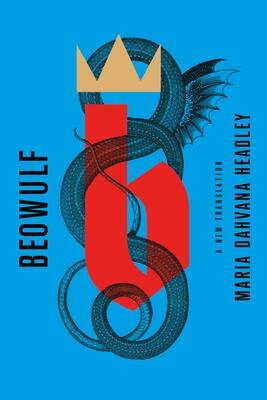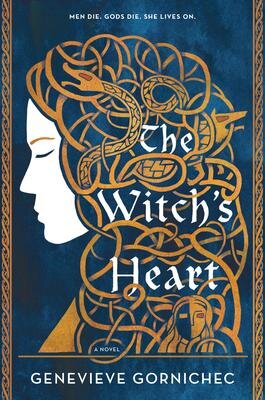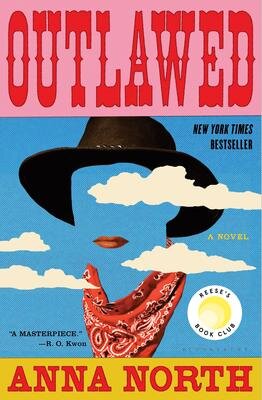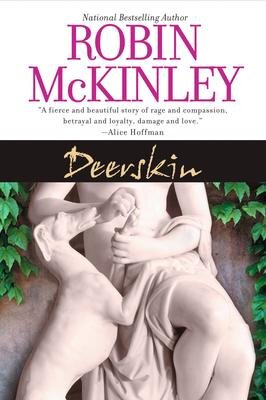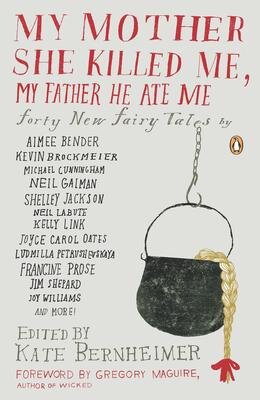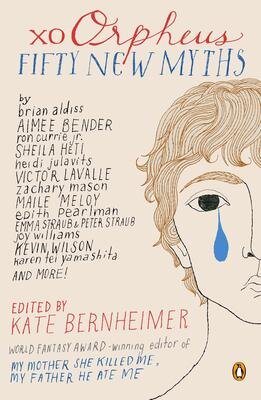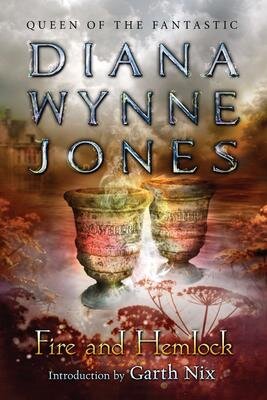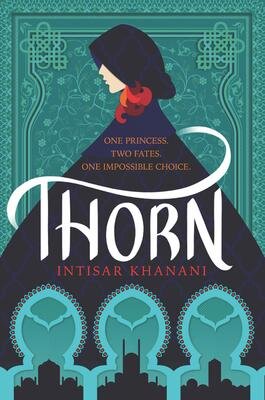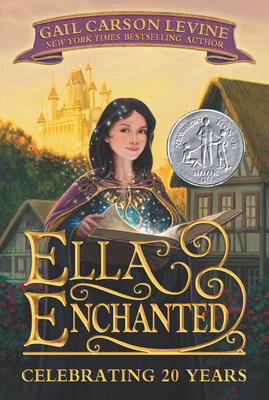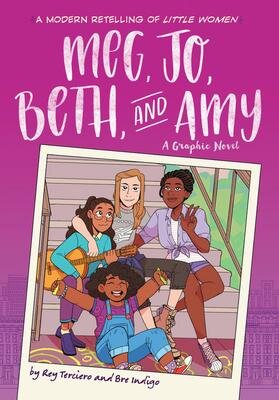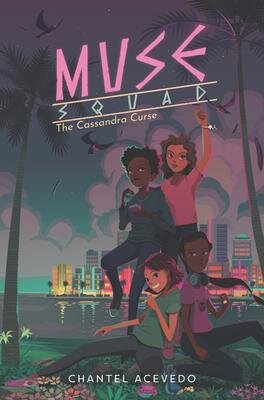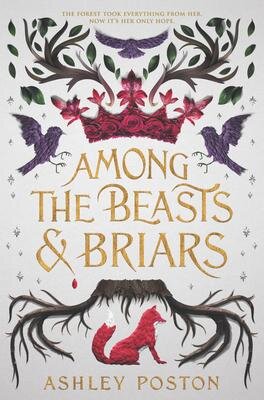Classics, Myths, & Fairytales Reimagined by Women
In the second installment of our new series bringing some of our favorite posts from the archives onto the blog, we explore classic myths and fairytales retold by women.
I have a story I like to tell whenever Madeline Miller comes up in conversation with someone at the bookstore: it took me a year to read The Song of Achilles. Not out of a lack of interest or because it was slow — I loved it, truly, and I thought the pacing was phenomenal. But as a lifelong lover of mythology I knew the story of The Iliad. I knew Patroclus and Achilles’ fate. I knew this novel would hold nothing but bitter heartbreak, and with every gut-punching chapter I managed to get through I had to put it down for a month or longer at a time to give myself time to recover and prepare myself emotionally. It took time, and effort, and ultimately it was worth it. Miller has an incredible skill for pouring battery acid in the wound of abject tragedy, then kissing it to make the boo-boo better.
It’s a skill that I’m seeing more and more of lately: women authors who take grandiose legends and make them beautifully, touchably human. Miller takes the divine strength of Achilles and makes him a boy in love. Then, in Circe, she does it even better: she takes background witch-woman character of The Odyssey and makes her a living, breathing person with hopes and dreams and rage and pain and consequence.
If you’ve read Circe, this is a roundup of books to look forward to and books to look back on — similar in spirit, fierce and lovely and powerful. If you haven’t read Circe: do that. Love yourself.
Written by Abby Rauscher and Colleen Callery
Circe by Madeline Miller
“But a monster… always has a place. She may have all the glory her teeth can snatch. She will not be loved for it, but she will not be constrained, either.”
Circe is about a woman who is born at the bottom of the divine totem pole: she is the daughter of a Titan, but has no godly powers. She is tormented and reviled and abused; disregarded, exiled, assaulted. She is given nothing, and with nothing she creates her own power. A solitary witch, she forges her own path, clawing out her place in a world that would punish her for existing.
The Odyssey by Homer, trans. Emily Wilson
“Poets are not to blame for how things are.”
Until Emily Wilson, there has never been a translation of The Odyssey that came through the eyes and ears and brutal hard work of a woman. It is, predictably, incredible. The nuance and grit and care with which she handles this ancient and lovely adventure is nothing less than perfect. If you’re a classicist, or you love mythology, or if you never thought you’d be able to just sit down and read The Odyssey: try Wilson’s. It is — she is — a gift.
Home Fire by Kamila Shamsie
“For girls, becoming women was inevitability. For boys, becoming men was ambition.”
Much like the Antigone myth on which it is based, Home Fire is a quick, powerful read with an absolutely brutal climax.
Isma is a young Muslim woman and the primary caretaker of her younger twin siblings, Aneeka and Parvaiz. Once her siblings turn 18, Isma seeks to continue her education by leaving their London home for America; Aneeka begins a clandestine affair with the son of the British Home Secretary; Parvaiz, adrift without his siblings, is seduced into the mire of radicalization with promises of information about the siblings’ father.
If you know the myths, you know: this is a tragedy. Kamila Shamsie has transformed it masterfully.
The Mere Wife by Maria Dahvana Headley
“You figure out what you can do for love, and the answer, it turns out, is anything.”
Similar to Madeline Miller’s work with Circe, Maria Dahvana Headley is a writer who took an ancient story and refocused the narrative. The Mere Wife is a masterful contemporary retelling of Beowulf that centers on the perspective of Grendel’s mother. Like Circe, The Mere Wife is about a woman’s strength, a woman’s power; unlike Circe, it is set wholly within the realistic world.
Corporal Dana Mills is overseas when she’s captured and held as a prisoner of war. She’s executed, beheaded on a video broadcast. Then she stumbles out of the desert, six months pregnant, dead woman walking. She sequesters herself in the dark hidden places of the mountain looming over her hometown and gives birth to a baby boy — a monster? A boy. His name is Gren.
The Bloody Chamber by Angela Carter
“Like the wild beasts, she lives without a future. She inhabits only the present tense, a fugue of the continuous, a world of sensual immediacy as without hope as it is without despair.”
Respect the classics. Angela Carter was the fairy godmother of feminist retellings; each story in The Bloody Chamber is decadent, gothic, romantic, pulsing and so very gorgeously alive with the power of actualized identity and sexual awakening. It’s partially a lesson in good feminist writing; it’s partially just goddamn sexy.
Gingerbread by Helen Oyeyemi
“When you endure some poison in the hope that it’ll give rise to its own antidote, on what terms does that hope come to you…?”
A wonderfully weird homage to Hansel and Gretel, Helen Oyeyemi’s latest winding, wandering novel is a truly delicious morsel of magical realism. Gingerbread is lyrical and lovely, a treat of beautiful language and compelling characters and hearty, genuine love of the absurd and obscene anti-logic that pervades fairy tales. Abstract, fragmented, perfection.
Everything Under by Daisy Johnson
“We become strangers to the places we are born. They would not recognize us but we will always recognize them. They are marrow to us; they are bred into us. If we were turned inside out there would be maps cut into the wrong side of our skin.”
When Daisy Johnson came to Books Are Magic to talk with Lauren Groff about Everything Under, she mentioned how she wished the the text on the back of the book hadn’t revealed that the story was based on the Oedipus myth. I think about this sometimes, and how differently, if at all, it would have impacted my reading of it. The tragic story of a son doomed to kill his father and marry his mother is, in Johnson’s hands, wholly transformed into a modern understanding of origin stories, this time with river monsters, trans characters, and a deep relationship with language.
She Would Be King by Wayétu Moore
“Loneliness while in the presence of others is a most cruel kind.”
Based on the creation story of Liberia, Moore delves into the crevices and history of a young country trying to define itself outside colonial rule and the three supposedly cursed people who lead that liberation. In the first days of Monrovia, the Wind watches over three people — Bessa (a woman unable to die), Norman (a child of master-slave abuse who is able to fade from sight at will), and June Day (a man capable of impossible strength). With bright prose and a large scope, She Would Be King is a story of the African diaspora and the tumultuous roots of a country finding its place.
The Silence of the Girls by Pat Barker
“Yes, the death of young men in battle is a tragedy — I’d lost four brothers, I didn’t need anybody to tell me that. A tragedy worthy of any number of laments — but theirs is not the worst fate. I looked at Andromache, who’d have to live the rest of her amputated life as a slave, and I thought: We need a new song.”
Pat Barker’s retelling of The Iliad in The Silence of the Girls comes from the perspective of Briseis, queen of one of Troy’s neighboring cities, until her city was sacked, her husband and brothers killed, and she was captured and forced to serve as Achilles’s concubine. She watches the war waging in Troy, adjusting to life under Greek rule until Agamemnon demands her for himself, placing her in a unique position between two of the most powerful Greek figures. One of thousands of women living during this war, Briseis offers a completely new entry into a legend we have heard for thousands of years, opening up new insights and understandings into ancient Greek history and the consequences of war.
Naamah by Sarah Blake
Most of us raised in Western households are familiar with the Biblical story of Noah’s Ark, the giant boat that saved humanity and the Earth’s wildlife from the Great Flood. In her transcendent new book Naamah, Sarah Blake retells the story of the Great Flood from the perspective of Noah’s wife, Naamah, a wonderfully complex and fiercely feminist character who is torn between rage and her faith, tempted by angels, mourning a lover left behind, and of course, still wrangling a hoard of wild beings over the open sea. We love a writer who reminds us of the resilience and determination of women.
Updates:
These are both lively updates to centuries-old tales: one a feminist take of the eponymous epic and the other a fresh imagining of a classic Russian folktale. Plus, Maria Dahvana Headley’s translation makes a great companion to her novel The Mere Wife!
The Witch's Heart by Genevieve Gornichec
If you loved Circe - this is the Norse equivalent! Angrboda may have been notoriously known as the “wife of Loki” but she is so much more - admirably witty and powerful. –Jacque
A longtime professor of ancient Greek classics, Carson’s entire body of work deals in the realm of the mythopoetic. In Autobiography of Red—her most well-known work—she draws from the story of Herakles (Hercules), imagining a love affair between him and her troubled protagonist, Geryon. In her most recent work, Norma Jean Baker of Troy, she merges the mythos surrounding two iconic female figures: Helen of Troy and Marilyn Monroe. As always, the result is compelling, probing, and fresh. –Serena
Natalie Haynes honors women by only offering multiple female perspectives of what happened during the Trojan War. This is a female empowerment novel in all its glory! –Jacque
Featured as the final piece of this dynamic and textured, mixed-genre collection is a retelling of the Greek tragedy of Antigone, artfully reimagined here as a Nez Perce-Cayuse conflict over ancestral remains. –Serena
Outlawed by Anna North, Deerskin by Robin McKinley, My Mother She Killed Me, My Father He Ate Me & xo Orpheus, edited by Kate Bernheimer
Okay, so these don’t technically fit the list–the first two don’t come from specific myths or fairytales and the last two aren’t written exclusively by women–but all four books do rethink classic stories and tropes in exciting and brilliant ways.
Intricately composed, intimate, and lyrical, Karthika Naïr’s Under the Lions offers a revelatory new take on the Mahabharata.
This dystopian book not only challenges the Cinderella myth, but also shatters the idea of Prince Charming by offering another version of what really happened. It presents an improved moral: women don’t need a Prince Charming to be amazing success stories! –Jacque
Forthcoming:
Young Readers:
Retellings and updated myths are especially popular among young readers: just look at Rick Riordan’s books, everything published by his imprint, and all things Ashley Poston or Holly Black. Here are a few more:













